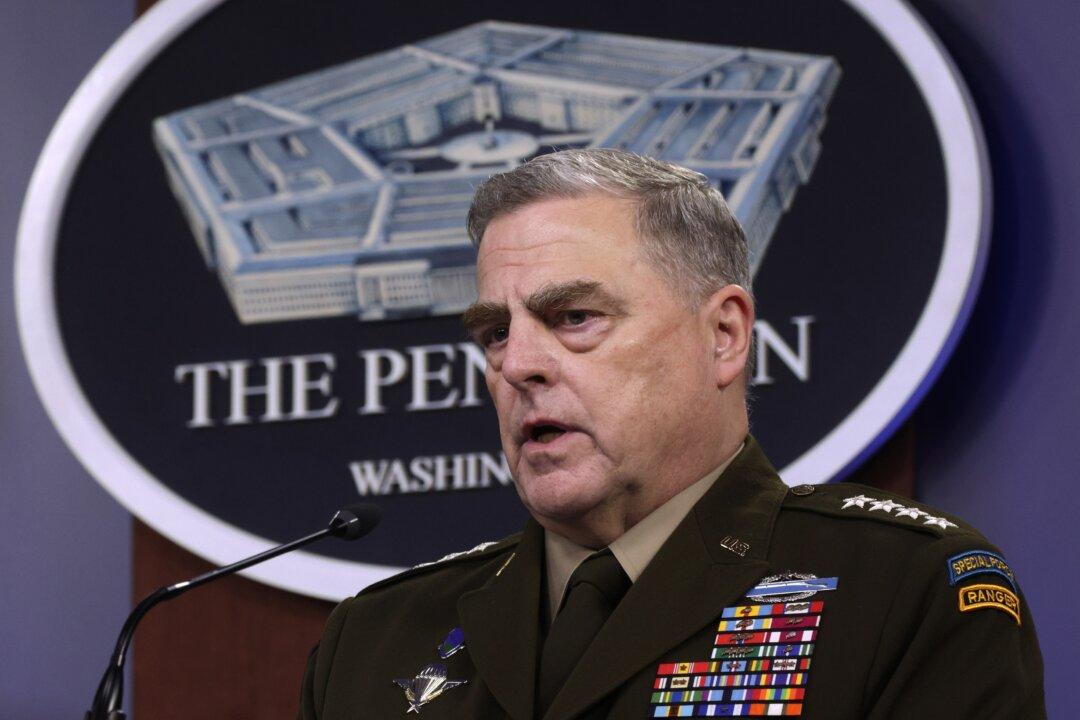Faced with calls to resign or an investigation, Joint Chiefs of Staff Chairman Mark Milley on Friday defended two phone calls he allegedly made in secret to his Chinese Communist Party counterpart.
The general reached out to Gen. Li Zuocheng of the People’s Liberation Army several days before the November 2020 election and two days after the Capitol breach on Jan. 6 to reassure the Chinese army that an attack isn’t incoming, according to excerpts of a book that was published this week.





